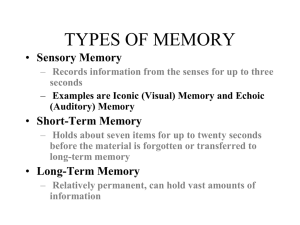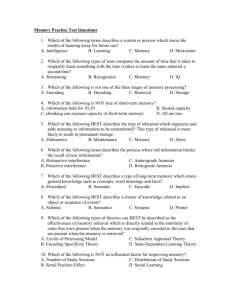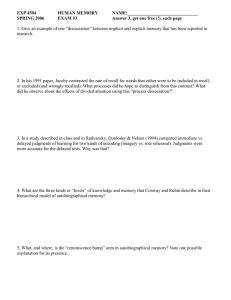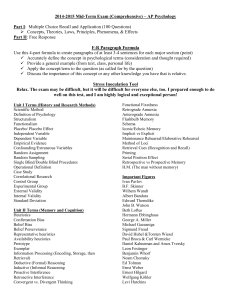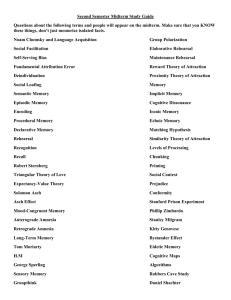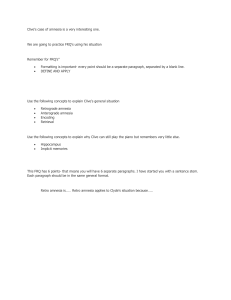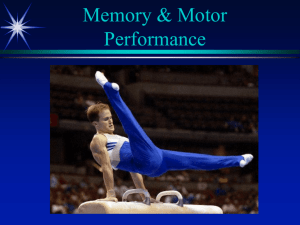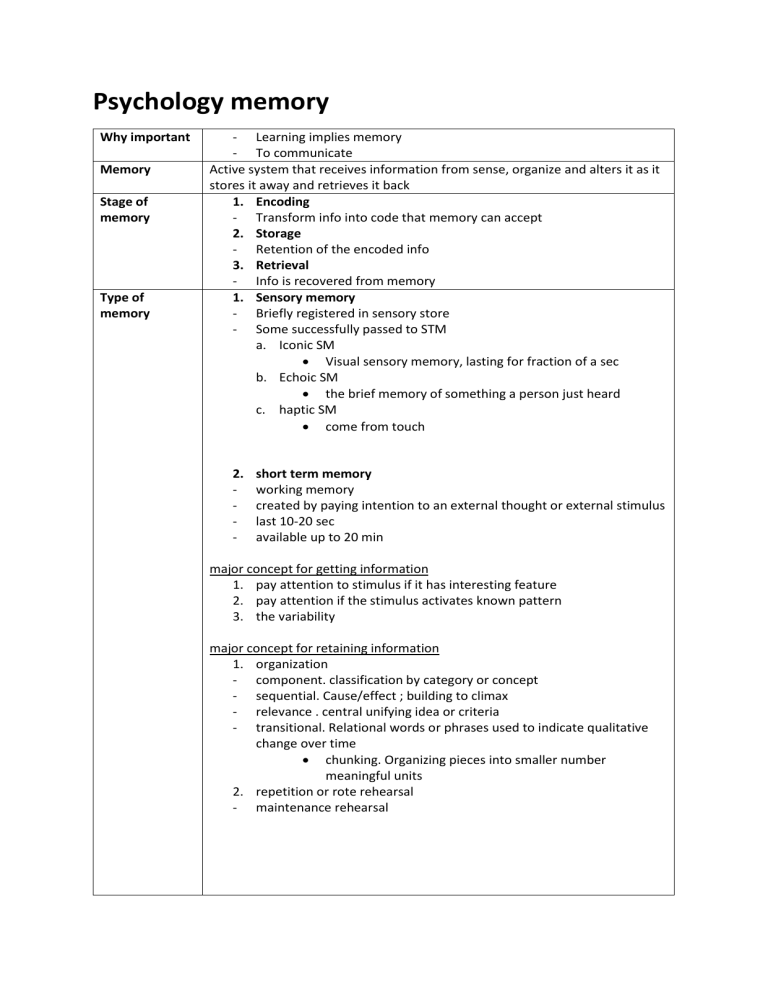
Psychology memory Why important Memory Stage of memory Type of memory - Learning implies memory - To communicate Active system that receives information from sense, organize and alters it as it stores it away and retrieves it back 1. Encoding - Transform info into code that memory can accept 2. Storage - Retention of the encoded info 3. Retrieval - Info is recovered from memory 1. Sensory memory - Briefly registered in sensory store - Some successfully passed to STM a. Iconic SM Visual sensory memory, lasting for fraction of a sec b. Echoic SM the brief memory of something a person just heard c. haptic SM come from touch 2. - short term memory working memory created by paying intention to an external thought or external stimulus last 10-20 sec available up to 20 min major concept for getting information 1. pay attention to stimulus if it has interesting feature 2. pay attention if the stimulus activates known pattern 3. the variability major concept for retaining information 1. organization - component. classification by category or concept - sequential. Cause/effect ; building to climax - relevance . central unifying idea or criteria - transitional. Relational words or phrases used to indicate qualitative change over time chunking. Organizing pieces into smaller number meaningful units 2. repetition or rote rehearsal - maintenance rehearsal 3. long term memory - all information is to kept more or less permanently - preconscious and unconscious to move info in LTM are elaborate & distributed practices - a. preconscious info easily recalled – memory maybe available but not easily accessed b. unconscious data that is not available during normal conscious 1. - elaboration imaging method of loci pegword method rhyming initial letter occur because the item are displaced by newer one or decay by time breakdown of memory can in any stages retrieval processes can be disrupted by emotional factor amnesia refer to partial or total loss of memory - Forgetting Amnesia type 1. encoding failure - info is not attended to and fails to be encoded 2. decay od disuse - info that is not accessed decays from the storage system over time 3. proactive interference - older info already in memory interferes with the retrieval of newer info 4. retroactive - newer info interferes with other retrieval of older info 1. anterograde amnesia - inability to acquired new info or to remember day-to-day events 2. retrograde amnesia - inability to remember events that occurred prior to injury 3. infantile amnesia
